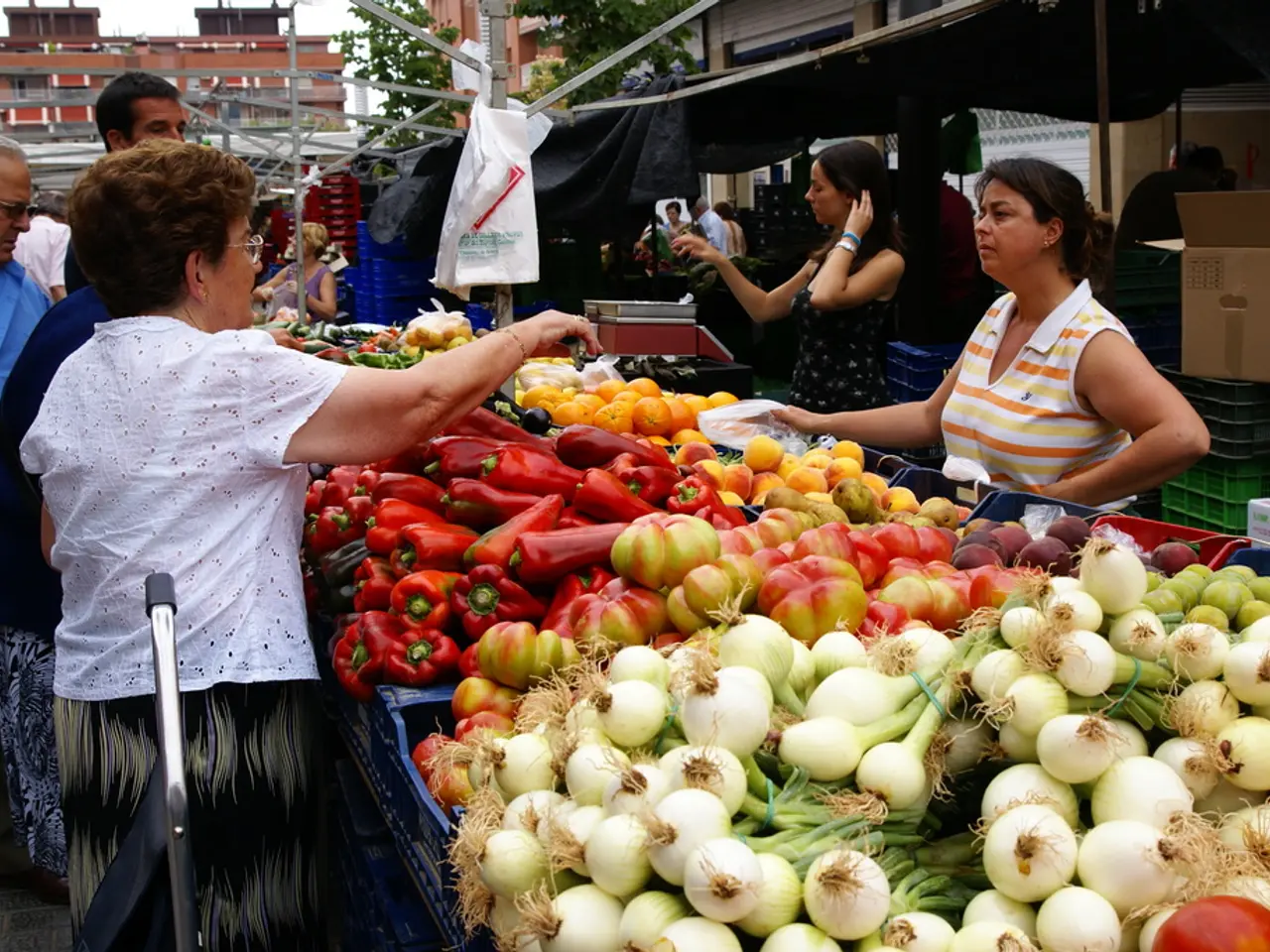Negotiations for a global pact to combat plastic pollution have fallen through, resulting in no agreement reached.
In a disappointing turn of events, the recent global treaty negotiations on plastic pollution held in Geneva from August 5 to 14, 2025, have ended without an agreement. The 10-day session, known as INC-5.2, involved over 1,400 delegates from 183 countries, but could not finalize stricter, enforceable rules despite the extended negotiations[1].
The negotiations were aimed at creating a legally binding global treaty to end plastic pollution. However, nations failed to reach consensus on key issues such as imposing caps on new plastic production versus focusing on waste management, reuse, and improved design[3]. The chair of the negotiations expressed optimism that talks will continue in the future, although no new dates have been set yet[1].
The failure of the talks is viewed by some experts as a setback rather than a defeat. Concerns were raised that certain parties prioritized the interests of petrochemical corporations over environmental and public health protections, blocking stronger measures[2]. For instance, a cluster of mostly oil-producing states, known as the Like-Minded Group, wanted the treaty to have a much narrower remit[1].
On the other hand, the High Ambition Coalition, which includes the European Union, Britain, Canada, and many African and Latin American countries, wanted language on reducing plastic production and the phasing out of toxic chemicals used in plastics[2]. The failure to reach an agreement has left advocates pushing for a stronger and more comprehensive treaty addressing environmental, health, climate, and justice aspects[1][2][3].
The Organization for Economic Cooperation and Development predicts that annual production of fossil-fuel-based plastics will nearly triple by 2060 to 1.2 billion tonnes, while waste will exceed one billion tonnes[4]. This underscores the urgency of finding a solution to the plastic pollution crisis.
Several nations, including Cuba, Colombia, and Tuvalu (speaking for 14 Pacific small island developing states), expressed bitter disappointment at the failure of the talks[1]. Colombia accused a small number of states of blocking the negotiations, while France's Ecological Transition Minister, Agnes Pannier-Runacher, stated that a handful of countries, guided by short-term financial interests, had blocked the adoption of an ambitious treaty[2].
Tuvalu lamented that without global cooperation and state action, millions of tonnes of plastic waste will continue to be dumped in oceans, affecting their ecosystem, food security, livelihood, and culture[1]. In fact, microplastics have been found on mountain peaks, in ocean trenches, and scattered throughout almost every part of the human body[5].
As the future of the negotiations is not immediately clear, advocates and nations alike must continue to push for a comprehensive and ambitious treaty to address the global plastic pollution crisis.
References: [1] BBC News, "Global plastic pollution treaty talks end without agreement", 14 August 2025, https://www.bbc.co.uk/news/science-environment-56696845 [2] The Guardian, "Global plastic pollution treaty talks fail to reach agreement", 14 August 2025, https://www.theguardian.com/environment/2025/aug/14/global-plastic-pollution-treaty-talks-fail-to-reach-agreement [3] Reuters, "Exclusive: Plastic treaty talks in Geneva end without agreement", 14 August 2025, https://www.reuters.com/business/environment/exclusive-plastic-treaty-talks-geneva-end-without-agreement-2025-08-14/ [4] OECD, "Plastics and the Environment Outlook", 2025, https://www.oecd.org/environment/plastics-and-the-environment-outlook/ [5] National Geographic, "Microplastics: What They Are and Where They Come From", 2022, https://www.nationalgeographic.org/encyclopedia/microplastic/
- The global treaty negotiations on plastic pollution in Geneva aimed to create a legally binding international agreement to end plastic pollution, but ended without an agreement in August 2025, leaving advocates and nations to push for a comprehensive and ambitious treaty to address the global plastic pollution crisis.
- The failure to reach an agreement was viewed by some experts as a setback, as concerns were raised that certain parties prioritized the interests of petrochemical corporations over environmental and public health protections, blocking stronger measures.
- Key issues such as imposing caps on new plastic production versus focusing on waste management, reuse, and improved design were points of contention, with the Like-Minded Group pushing for a narrower remit, and the High Ambition Coalition advocating for language on reducing plastic production and the phasing out of toxic chemicals used in plastics.
- The Organization for Economic Cooperation and Development predicts that annual production of fossil-fuel-based plastics will nearly triple by 2060, underscoring the urgency of finding a solution to the plastic pollution crisis.
- Microplastics have been found in nearly every part of the human body, ocean trenches, mountain peaks, and scattered throughout almost every part of the world, highlighting the need for cultural, artistic, and political action to address the environmental, health, climate, and justice aspects of the plastic pollution crisis.





